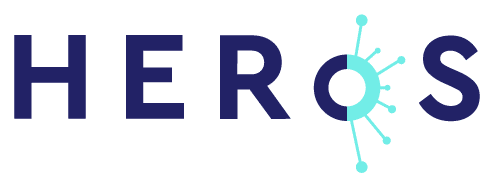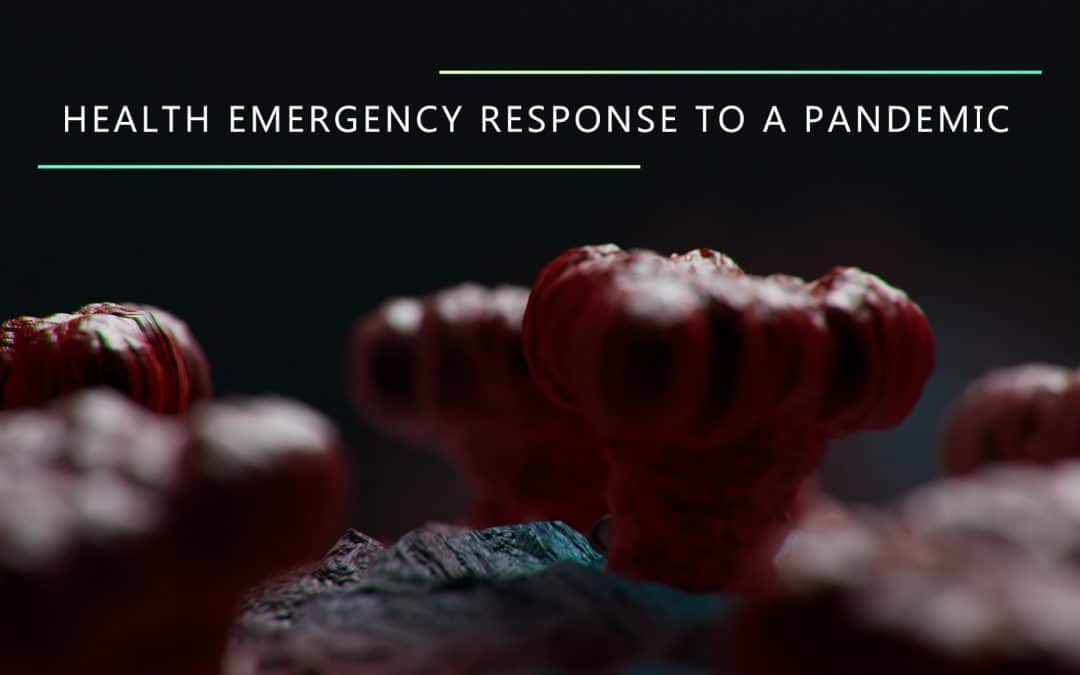CONFERENCE
Health Emergency Response in Interconnected Systems
Gdansk (Poland) - 25 May 2023
The conference Health Emergency Response in Interconnected Systems will present the findings of the HERoS project, which conducted research between 2020 and 2023 in the context of the COVID-19 crisis to generate actionable knowledge that contributes to improving pandemic response under four areas: governance, models in epidemics, medical supply chain management, and social media analytics.
GOVERNANCE
Research led by Vrije University Amsterdam (Netherlands)
HERoS proposed a whole-of-society governance framework to understand formal and informal decision making during crisis situations. Vulnerabilities and unintended consequences of COVID-19 policies on nursing home residents and secondary school students were studied using visual ethnographic and participatory methods. This research area also conferred attention on transnational governance arrangements for pandemic response: COVAX, EU Advanced Procurement Agreement, international deployment of emergency medical teams.
MODELS IN EPIDEMICS
Research led by Technical University of Delft (Netherlands)
HERoS developed agent-based and coupled behavioural and epidemiological models as well as visualisation tools. More broadly, this research area seeks to understand how models and data can be used to inform public decision making in conditions of deep uncertainty.
MEDICAL SUPPLY CHAIN MANAGEMENT
Research led by Hanken School of Economics (Finland)
This research area identified gaps in medical supply chains as illustrated by the initial phase of the COVID-19 pandemic. On this basis, the project formulated recommendations to secure medical supplies. This work package also analysed the cascading effects and economic impact of supply chain disruption. Finally, HERoS carried out simulations and developed workflows and standard operating procedures to advance towards delivery of medical supplies to quarantines or remote zones using unmanned aerial vehicles.
SOCIAL MEDIA ANALYTICS
Research led by Open University (United Kingdom)
The HERoS project developed and evaluated tools and methods to automatically detect and mitigate the impact of online misinformation during the COVID-19 pandemic. HERoS analysed more than three years of fact-checks and social media data for understanding the relationship between fact-checking and misinformation across topics and demographics and developed the Fact-checking Observatory (fcobservatory.org), a website that generates human-readable weekly reports about the spread of covid-related misinformation and fact-checks. As part of its research on misinformation, HERoS also investigated the effectiveness of a Twitter bot in reducing the sharing of misinforming content.
The target audience of this conference includes:
- Practitioners at pandemic response organisations (government and non-government)
- Policymakers: local, regional, national, European, international
- Researchers and students in fields such as governance, epidemiological or behavioural models, medical supply chains, humanitarian logistics, social media analytics, online misinformation
8h30 Registration
9h00 General introduction to HERoS – Gyöngyi Kovacs (HUMLOG Institute – HANKEN School of Economics)
9h15 Models, data and public decision making in a pandemic – Mikhail Sirenko (Technical University of Delft), Ira Haavisto (Nordic Healthcare Group), Anna Foks-Ryznar (Crisis Information Centre- CBK-PAN)
The ICM Epidemiological Model – development of the COVID-19 epidemic in Poland – Rafał Bartczuk (Interdisciplinary Centre for Mathematical and Computational Modelling, University of Warsaw)
10h15 The CORE project: crisis awareness and preparedness – Wojciech Piotrowicz (HUMLOG Institute, HANKEN School of Economics)
10h30 Coffee break & exhibition
11h00 Mitigating medical supply chain disruptions – Gyöngyi Kovacs, Abdelsalam Hamid (HUMLOG Institute – Hanken School of Economics); Grzegorz Trzeciak (SQUADRON)
12h00 Monitoring, understanding and influencing the co-spread of COVID-19 misinformation and fact-checks – Harith Alani, Gregoire Burel (Knowledge Media Institute – The Open University)
13h00 Lunch & exhibition
14h00 COVID-19 governance
- Approaches and lessons learned (Kees Boersma, Vrije University Amsterdam)
- Case studies
- Decision making at Dutch nursing homes during the COVID-19 pandemic – Cato Janssen, Lianne Cremers (Vrije University Amsterdam)
- Joint procurement of vaccines – Yiannis Kyratsis (Vrije University Amsterdam)
- International deployment of Emergency Medical Teams (EMTs) – Wojtek Wilk (Polish Center for International Aid – PCPM)
- Local solidarity networks: Municipio Solidale Roma – Agnese Rollo (Italian Red Cross)
15h30 Coffee break & exhibition
16h00 RESISTIRE project findings: gendered impact of COVID-19 policies – Adam Brandstetter-Kunc (European Science Foundation)
16h15 FGB RESPOND project findings: mitigating mental health impact of COVID-19 policies – Christina Palantza (Vrije University Amsterdam)
16h30 We thought it would be fun (documentary screening) – Cato Janssen, Lianne Cremers (Vrije University Amsterdam)
17h30 Cocktail dinner
Exhibition space
- EU-funded projects: CORE, RESPOND, RESISTIRE
- HERoS partners’ activities: HUMLOG Institute, Polish Center for International Aid (PCPM), Italian Red Cross, Project HOPE, Crisis Information Centre – CBK-PAN
- Demonstrations: Fact-Checking Observatory (Knowledge Media Centre – The Open University), delivery of medical supplies by UAV (Squadron), participatory research using visual methods (Vrije University Amsterdam)
The Conference will be held at the Museum of the Second World War.
You can find information about accommodation options close to the conference venue here.


